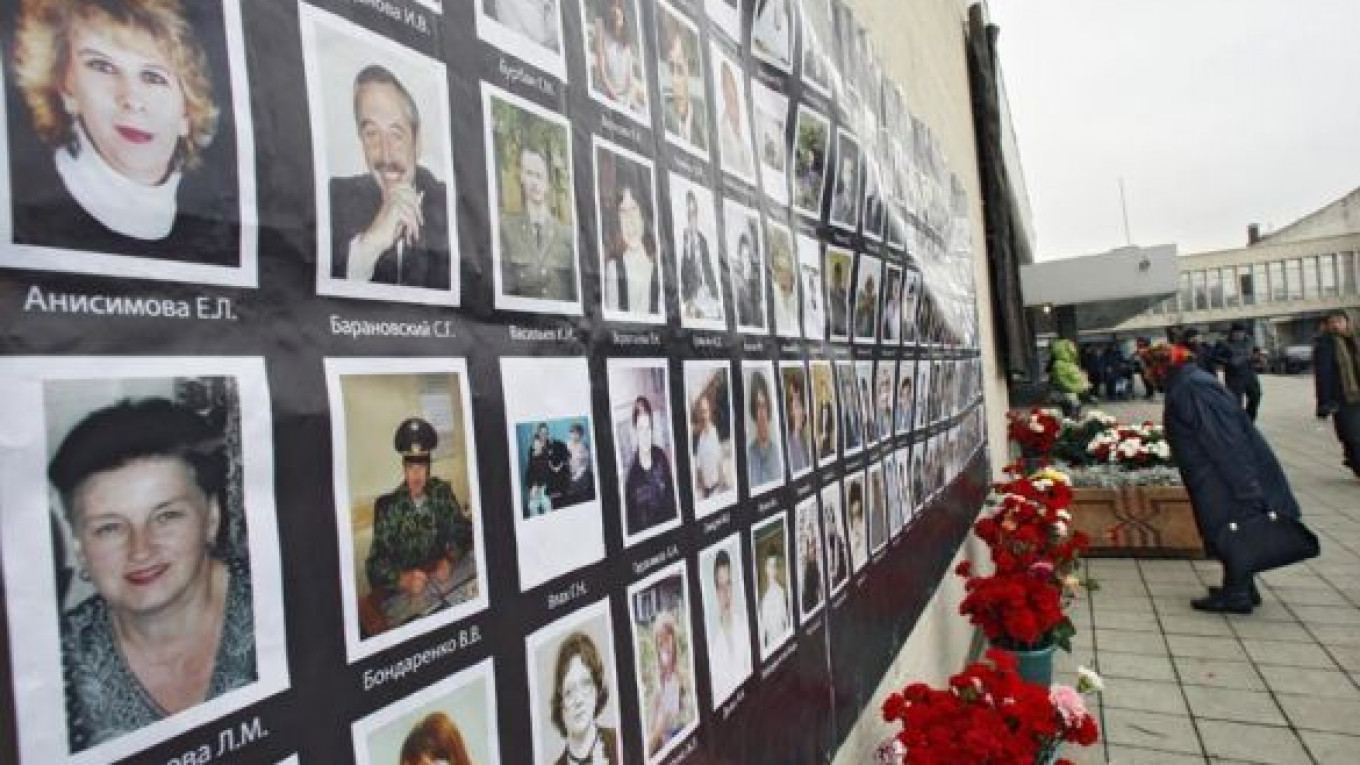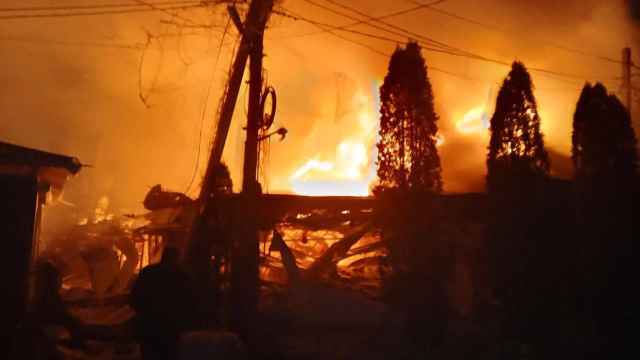People gathered Friday morning outside the Dubrovka Theater in southeast Moscow to commemorate the victims of the terrorist raid that claimed the lives of 130 hostages there 10 years ago.
Friends and relatives of the victims laid flowers and lit candles next to pictures of their loved ones killed as a result of the raid, either at the hands of the attackers or as a result of a botched resсue operation that ended the three-day standoff with the Russian security services on Oct. 26, 2002. Several hundred people in total attended the ceremony, according to RIA-Novosti.
Some people left toys by a memorial plaque on the outer wall of the theater in memory of 10 children who died that day, Interfax reported.
Survivors of the attack and relatives of the victims spoke from a makeshift stage built on the steps of the theater's main entrance lined with candles and pictures of the victims.
The ceremony was also attended by opposition politicians including Garry Kasparov and State Duma Deputy Dmitry Gudkov.
Russian Orthodox Bishop Savva Voskresensky conducted a liturgy for the victims at a chapel near the theater's entrance.
In recent days, politicians and lawmakers had reflected on the terror attack.
"Today, 10 years later, the pain does not go away, and with it the feeling of guilt for the perished shows through still more clearly," State Duma deputy speaker and former Moscow official Lyudmila Shvetsova wrote Thursday in a statement.
She praised the actions of the authorities during the siege and the storming of the theater 10 years ago, saying "we did a lot, if not everything" for the victims and survivors.
Her Duma colleague Vladimir Vasilyev told news portal Argumenty Nedeli that the government is committed to helping the victims of terrorist attacks, but this help is "not adequate."
Many survivors and relatives of the victims as well as experts questioned the authorities' actions during the storming of the theater. They say better coordination between various agencies and services could have prevented many deaths. They have also criticized the official inquiry into the hostage crisis, which did not uncover many details of what happened.
The raid began on Oct. 23, 2002, when a group of 40 heavily armed Chechen militants seized the theater during a performance of the popular musical "Nord Ost." They took 916 people hostage, including both spectators and actors, during a three-day standoff that ended with the storming of the building by security services on Oct. 26. An unknown gas, the makeup of which has never been revealed, was used by the authorities in the rescue effort, and 130 hostages died.
Related articles:
A Message from The Moscow Times:
Dear readers,
We are facing unprecedented challenges. Russia's Prosecutor General's Office has designated The Moscow Times as an "undesirable" organization, criminalizing our work and putting our staff at risk of prosecution. This follows our earlier unjust labeling as a "foreign agent."
These actions are direct attempts to silence independent journalism in Russia. The authorities claim our work "discredits the decisions of the Russian leadership." We see things differently: we strive to provide accurate, unbiased reporting on Russia.
We, the journalists of The Moscow Times, refuse to be silenced. But to continue our work, we need your help.
Your support, no matter how small, makes a world of difference. If you can, please support us monthly starting from just $2. It's quick to set up, and every contribution makes a significant impact.
By supporting The Moscow Times, you're defending open, independent journalism in the face of repression. Thank you for standing with us.
Remind me later.






